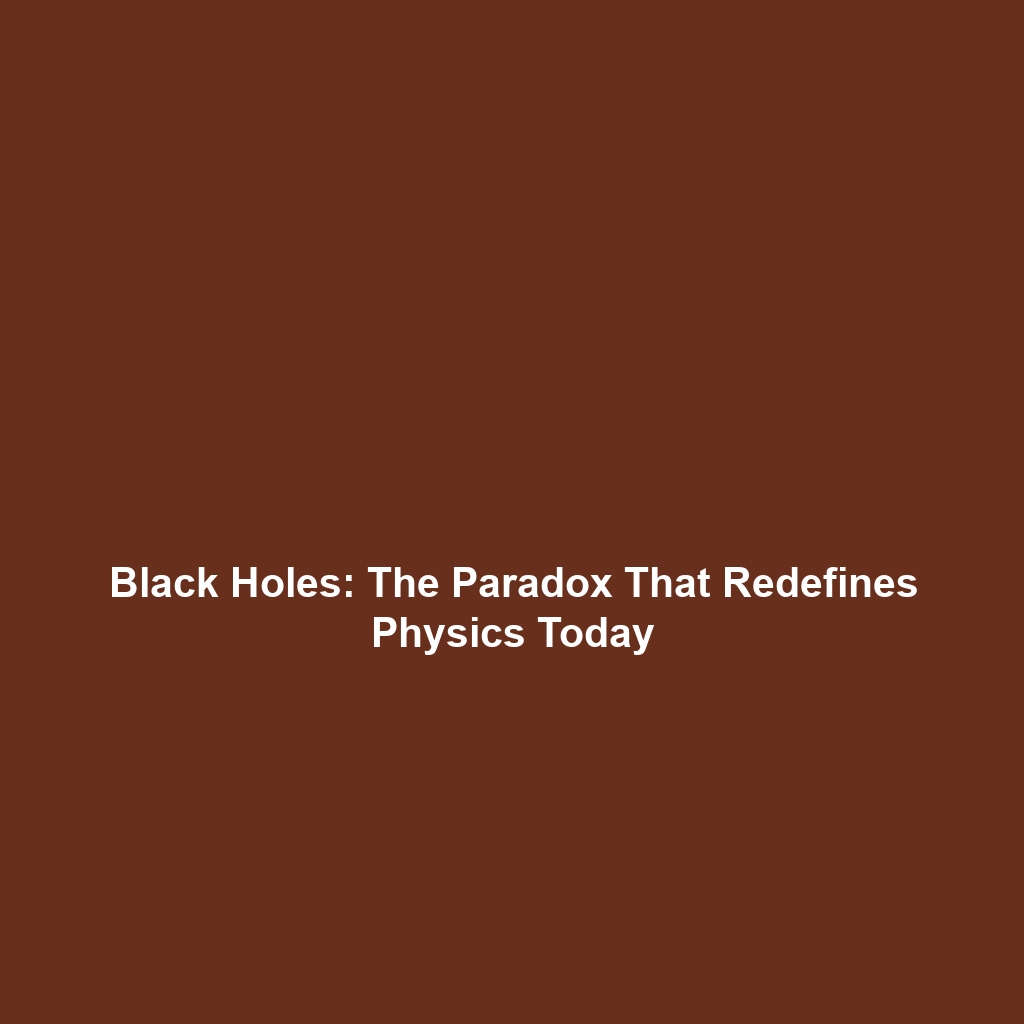How Paradoxes Challenge Our Understanding of Physics in Black Holes
Introduction: The study of black holes not only fascinates astrophysicists but also presents profound challenges to our understanding of physics. One such challenge is the interaction of information with black holes, known as the black hole information paradox. This paradox raises fundamental questions about the nature of information and spacetime, posing significant philosophical and scientific dilemmas within the field of theoretical physics. Understanding this paradox is essential for unraveling the mysteries of black holes and the universe itself.
Key Concepts
The black hole information paradox revolves around key principles in theoretical physics, primarily those related to quantum mechanics and general relativity. The following concepts are crucial for grasping this paradox:
- Black Hole Thermodynamics: This principle suggests that black holes emit radiation (Hawking radiation) and have entropy, challenging the idea of information being lost forever.
- Quantum Entanglement: The behavior of particles at quantum levels implies that information cannot be destroyed, contrasting with the predictions of classical physics regarding black holes.
- Event Horizon: The boundary surrounding a black hole, beyond which nothing can escape, complicates our understanding of how information behaves in extreme gravitational fields.
Applications and Real-World Uses
Understanding how paradoxes challenge our understanding of physics in black holes has real-world implications. Here are some significant applications:
- Quantum Computing: Insights from the black hole information paradox are inspiring advancements in quantum information theory, potentially leading to more efficient quantum computers.
- Astrophysical Observations: By studying black holes and their paradoxes, researchers improve observational techniques and technologies, enhancing our ability to observe deep space phenomena.
- Philosophical Implications: The paradox provokes philosophical discourse on the nature of reality, information, and existence, influencing areas beyond physics.
Current Challenges
Despite continued research, several challenges arise in studying the black hole information paradox:
- Resolving conflicts between general relativity and quantum mechanics.
- Understanding the precise nature and mechanics of Hawking radiation.
- Developing theoretical frameworks that effectively unify our knowledge of black holes with other domains of physics.
Future Research and Innovations
The future of physics and black hole research is filled with hope for breakthrough innovations:
- Theoretical Models: New models integrating quantum gravity may provide clearer insights into the black hole information paradox.
- Advanced Observatories: Upcoming space telescopes like the James Webb Space Telescope could yield new data that challenges existing theories.
- Interdisciplinary Studies: Collaborative research across physics, mathematics, and information theory may lead to profound discoveries about the universe.
Conclusion
In summary, the black hole information paradox represents a significant challenge in the realm of physics, questioning our understanding of fundamental truths about information and the universe. As research continues, the implications for both theoretical physics and practical applications remain vast. For those interested in delving deeper, explore related topics on quantum mechanics and astrophysics in our knowledge base.
Learn more about Quantum Mechanics | Discover Astrophysics Insights

Leave a Reply